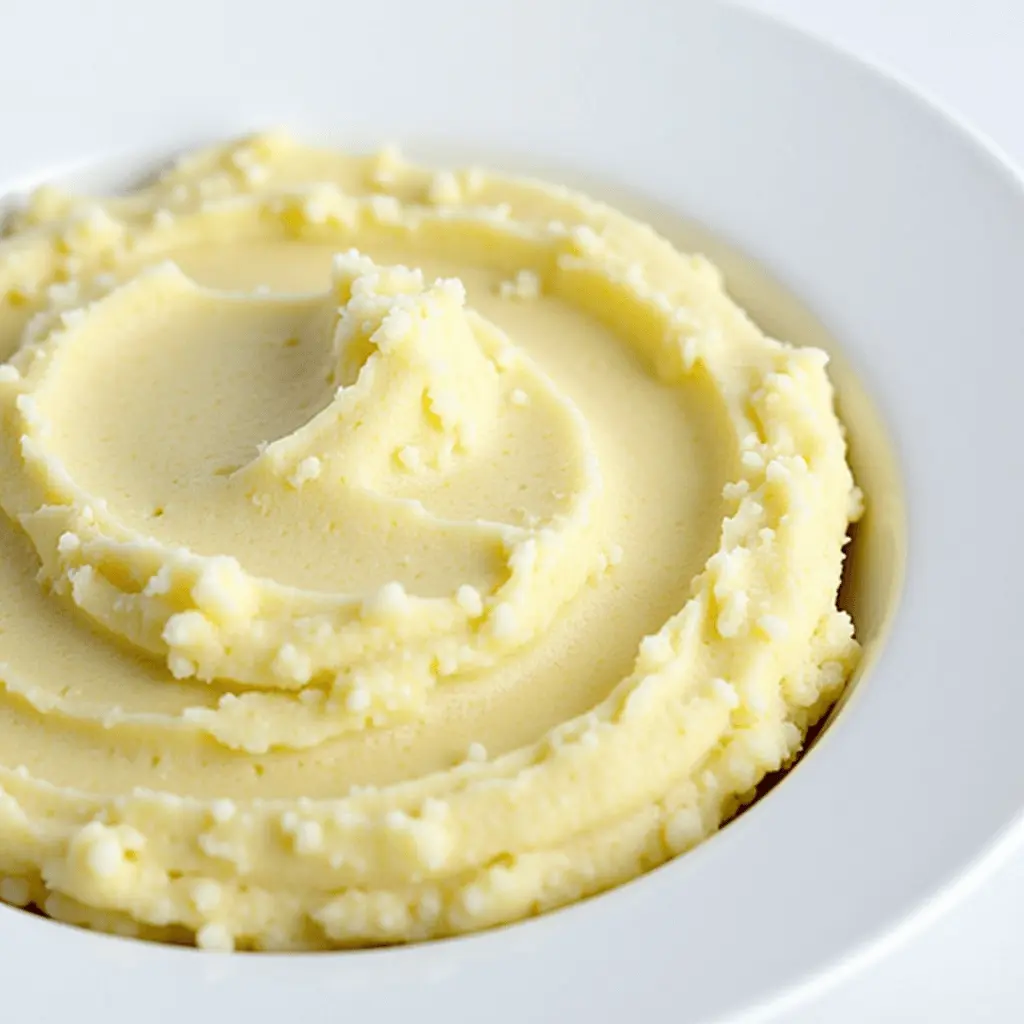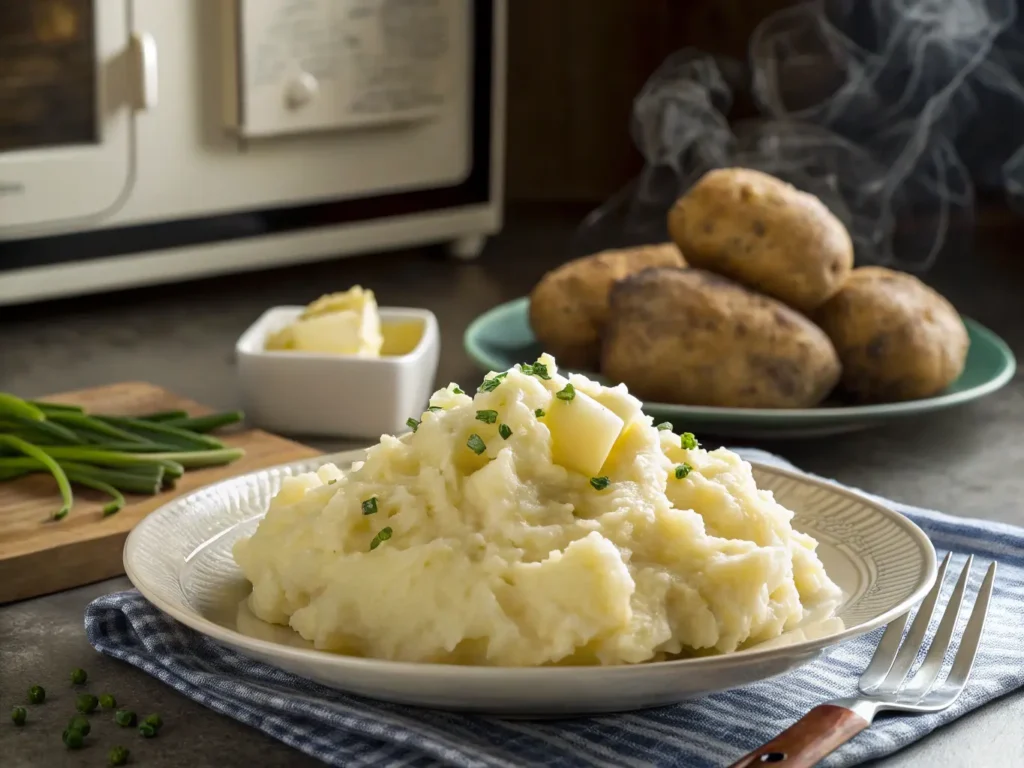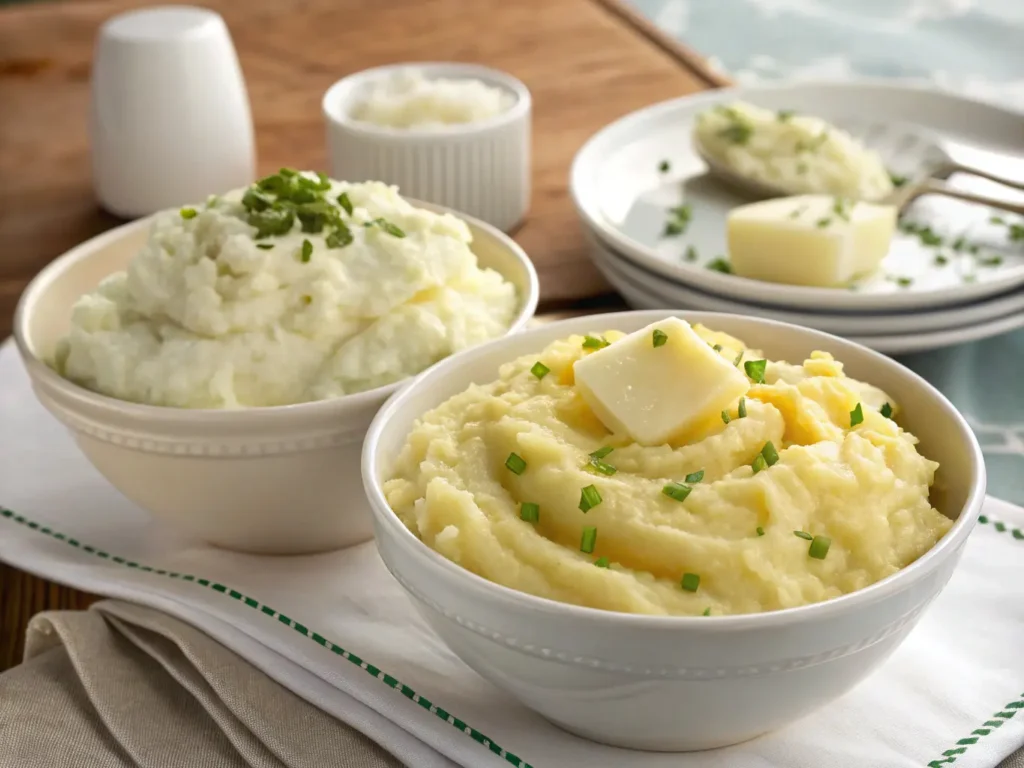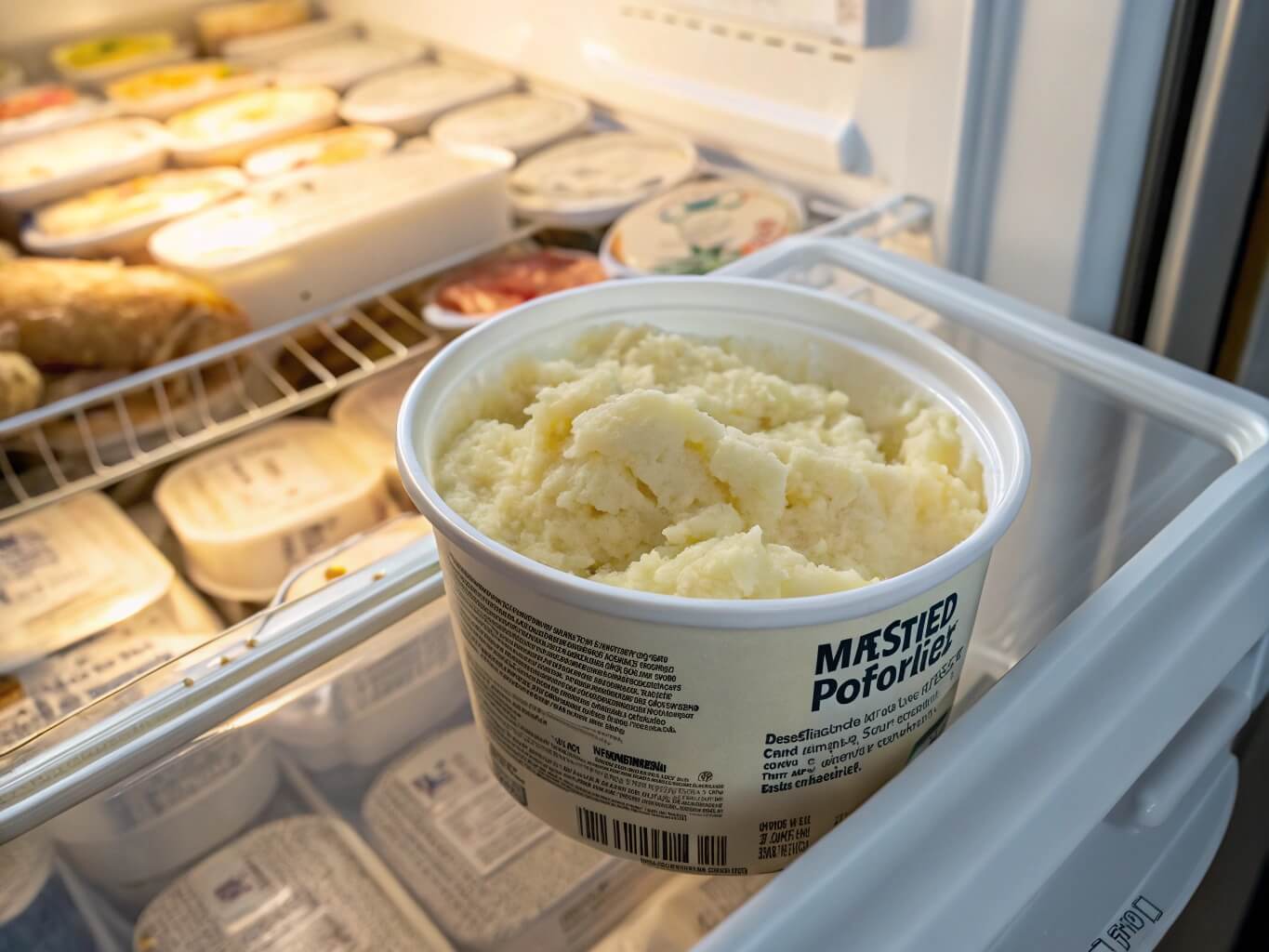Introduction
Mashed potatoes are a beloved comfort food, often accompanying a variety of meals. Store-bought mashed potatoes offer convenience, but what happens if you have leftovers or want to stock up? Many wonder if freezing mashed potatoes is possible without ruining their texture and taste. The good news is that store-bought mashed potatoes can be frozen successfully if done correctly. However, understanding how freezing affects ingredients, texture, and flavor is crucial to ensuring a satisfying result. In this article, we’ll explore everything you need to know about freezing store-bought mashed potatoes, from the best types to freeze to proper thawing and reheating methods. Whether you’re meal prepping or saving leftovers, this guide will help you make the most of your mashed potatoes while minimizing waste and maintaining quality.
Understanding the Ingredients in Store-Bought Mashed Potatoes
Most store-bought mashed potatoes contain more than just potatoes. They often include preservatives, dairy products like butter and cream, and stabilizers to maintain texture. These additional ingredients impact how well the mashed potatoes freeze and reheat. High-fat content from butter and cream helps maintain smoothness, while starch can sometimes turn grainy if not frozen properly. By understanding these ingredients, you can better determine which mashed potatoes will hold up best in the freezer.
The Science Behind Freezing Mashed Potatoes
Freezing affects food at a molecular level. Water expands when frozen, and since mashed potatoes contain a high amount of moisture, this can lead to textural changes. Starches can break down, causing a grainy or watery consistency upon thawing. However, adding extra fats like butter or cream before freezing can help mitigate these effects. Proper storage techniques and controlled thawing also play a significant role in maintaining quality.
Best Types of Store-Bought Mashed Potatoes for Freezing
Not all store-bought mashed potatoes freeze the same way. Those with a high butter or cream content tend to freeze better, as fats help preserve smoothness. Powdered or dehydrated mashed potatoes, once reconstituted, may not hold up as well in the freezer due to their different starch composition. Refrigerated mashed potatoes from grocery stores typically freeze better than those with artificial stabilizers.
How Freezing Affects Texture and Flavor
When frozen improperly, mashed potatoes can become dry, grainy, or watery upon thawing. Freezing also dulls flavors slightly, which means you may need to add additional seasoning when reheating. The good news is that proper freezing techniques, like using airtight containers and freezing in small portions, can help maintain flavor and texture.
Step-by-Step Guide to Freezing Store-Bought Mashed Potatoes

- Cool Completely – Ensure the mashed potatoes are fully cooled before freezing to prevent excess moisture buildup.
- Portion Into Small Servings – Divide into single or family-sized portions for easier thawing and reheating.
- Use Airtight Containers or Freezer Bags – Prevent freezer burn by sealing mashed potatoes in airtight containers or vacuum-sealed bags.
- Label and Date – Mark the container with the freezing date to keep track of freshness.
- Freeze Flat – If using bags, lay them flat in the freezer for easy stacking and quick thawing.
The Best Storage Containers for Freezing Mashed Potatoes
- Airtight plastic containers – Prevent freezer burn and keep portions organized.
- Silicone freezer trays – Ideal for small portion sizes and easy removal.
- Vacuum-sealed bags – Best for removing air and maintaining freshness.
- Aluminum foil with a layer of plastic wrap – Works for short-term freezing but less effective for long-term storage.
How Long Can You Freeze Store-Bought Mashed Potatoes?
Mashed potatoes can last up to 3 months in the freezer without significant loss of texture or flavor. While they remain safe to eat beyond that, the quality may start to degrade. Proper storage methods help maximize shelf life.
Proper Thawing Techniques for Frozen Mashed Potatoes
- Refrigerator Thawing (Best Method) – Transfer to the fridge and let thaw overnight.
- Stovetop Thawing – Heat on low, stirring occasionally to prevent separation.
- Microwave Thawing – Use a low power setting and stir frequently to maintain consistency.
How to Reheat Frozen Mashed Potatoes for the Best Results
- Add Liquid – Mix in a little milk, cream, or melted butter while reheating to restore the mashed potatoes’ creamy texture and prevent them from becoming too dry.
- Use Low Heat – Reheat slowly over low heat on the stovetop or in short intervals in the microwave to avoid overheating, which can cause the potatoes to dry out or develop an unpleasant texture.
- Stir Frequently – Stirring regularly helps distribute heat evenly, preventing lumps and ensuring a smooth consistency. This also keeps the potatoes from sticking to the pan or becoming too thick.
- Taste and Adjust – Before serving, season with salt, pepper, or extra butter to enhance the flavor. A splash of cream or a pinch of herbs can also add freshness and depth.

Common Mistakes to Avoid When Freezing Mashed Potatoes
Skipping the cooling step before freezing mashed potatoes can cause condensation, leading to ice crystals that affect the texture. Freezing in large batches makes it difficult to thaw evenly, which can result in a loss of texture. Using non-airtight containers can expose the potatoes to freezer burn, causing flavor loss and a dry texture. Additionally, not adding extra fat, like butter or cream, can reduce the creaminess when reheating, leaving the potatoes less smooth and flavorful. Proper preparation, such as cooling, portioning, and using airtight containers, ensures better results when freezing mashed potatoes and helps maintain their taste and texture.
Tips to Improve the Texture After Freezing and Reheating
Whisk in a little warm milk or cream when reheating mashed potatoes to help restore their smooth texture and enhance flavor. For a creamier consistency, use a hand mixer or immersion blender to mix the potatoes, especially if they’ve become lumpy during freezing. Allow thawed mashed potatoes to sit at room temperature for a few minutes before reheating to ensure even warming. This helps to prevent uneven heating and ensures the potatoes heat through evenly. You can also add a small amount of butter or seasoning to further improve the taste and texture of the reheated potatoes.
Creative Ways to Use Frozen Mashed Potatoes in Recipes
- Shepherd’s Pie – Mashed potatoes make an excellent topping for a hearty shepherd’s pie, adding a creamy and fluffy texture to the savory filling beneath. It helps to create a satisfying and comforting dish perfect for any occasion.
- Mashed Potato Soup – Turn leftover mashed potatoes into a smooth and creamy soup by blending them with broth, seasonings, and a dash of cream. This easy-to-make soup is warm, comforting, and perfect for cold days.
- Potato Pancakes – Combine mashed potatoes with egg, flour, and seasonings to form a batter, then pan-fry them for a crispy and delicious treat. These pancakes are great for breakfast or a side dish.
- Stuffed Meatballs – Use mashed potatoes as a stuffing for meatballs, adding creaminess and richness to each bite, complementing the savory meat.
- Casserole Base – Add mashed potatoes as a creamy base in casseroles, enriching the overall texture and flavor of the dish.
Are Frozen Mashed Potatoes as Good as Fresh?
While freezing alters the texture slightly, properly frozen mashed potatoes can taste almost as good as fresh when reheated with care. Adding extra butter, cream, or seasoning can help restore flavor and texture. Though fresh mashed potatoes will always have the best consistency, freezing is a great way to save time and reduce food waste.

To freeze mashed potatoes successfully, allow them to cool completely before portioning into airtight containers or freezer bags. Flattening the portions helps with even freezing and quicker thawing. When reheating, use gentle heat on the stovetop, microwave, or oven, stirring occasionally to maintain a smooth consistency. Adding a splash of milk or cream while warming can enhance the texture. Proper storage ensures they stay fresh for up to two months.
Final Thoughts on Freezing Store-Bought Mashed Potatoes
Freezing store-bought mashed potatoes is a simple and effective way to extend their shelf life without compromising too much on taste and texture. By following the right techniques for freezing, thawing, and reheating, you can enjoy creamy mashed potatoes whenever you need them. Whether you’re meal prepping for the week or saving leftovers, properly stored mashed potatoes offer convenience and versatility in the kitchen. Give it a try and enjoy the benefits of having delicious mashed potatoes ready at a moment’s notice!
FAQs:
Can you freeze mashed potatoes in plastic containers?
Yes, you can freeze mashed potatoes in plastic containers, but it’s important to choose airtight, freezer-safe containers. Ensure the mashed potatoes are completely cooled before transferring them to avoid condensation, which can lead to ice crystals and freezer burn. Leave about half an inch of space at the top since mashed potatoes expand slightly when frozen. For extra protection, consider wrapping the container in plastic wrap before sealing the lid. When ready to use, thaw in the refrigerator overnight and reheat gently with added butter or milk to restore creaminess. Proper storage can keep frozen mashed potatoes fresh for up to three months.
Can you freeze mashed potatoes made with milk?
Yes, mashed potatoes made with milk can be frozen successfully, but the texture may change slightly upon thawing. Milk-based mashed potatoes tend to become grainy or watery after freezing due to the separation of fat and liquid. To prevent this, mix in extra butter or cream before freezing, as the fat helps maintain a smooth consistency. Store them in an airtight container or freezer bag, removing as much air as possible. When reheating, stir frequently and add a splash of warm milk to restore the original texture. Properly frozen and stored mashed potatoes can last up to three months in the freezer.
How long can you freeze mashed potatoes made with milk?
Mashed potatoes made with milk can be frozen for up to three months while maintaining good texture and flavor. After this period, they remain safe to eat but may develop freezer burn or a grainy consistency. To extend their freshness, store them in airtight containers or heavy-duty freezer bags, ensuring minimal air exposure. Label the container with the freezing date to keep track of storage time. When thawing, avoid sudden temperature changes—gradual thawing in the refrigerator overnight works best. Reheat gently on the stove or in the microwave, stirring occasionally and adding a bit of butter or milk to improve texture.
Can you freeze instant mashed potatoes?
Yes, you can freeze instant mashed potatoes, but they tend to have a different texture after thawing. Since instant mashed potatoes contain dehydrated potato flakes, they absorb moisture differently than fresh ones. Before freezing, prepare them with extra butter or cream to help retain their smoothness. Allow them to cool before storing in an airtight container or freezer bag. When reheating, stir well and add a small amount of milk or butter to restore creaminess. While freezing instant mashed potatoes is possible, it’s often easier to store the dry flakes and prepare fresh batches as needed.
Can you freeze Bob Evans mashed potatoes?
Yes, Bob Evans mashed potatoes can be frozen, but their texture may change slightly upon thawing. To freeze, divide them into portions and store them in airtight containers or heavy-duty freezer bags. Be sure to remove as much air as possible to prevent freezer burn. When reheating, add a little butter or milk and stir frequently to restore creaminess. Thawing them overnight in the refrigerator before reheating provides the best results. While freezing can slightly alter the consistency, proper storage and reheating techniques help maintain their taste and texture for up to three months.
If you’re interested in specific brands, you can check out this guide on freezing Bob Evans mashed potatoes.
Conclusion
Freezing store-bought mashed potatoes is a practical way to extend their shelf life and reduce food waste. By following the proper freezing, thawing, and reheating techniques, you can preserve their creamy texture and delicious flavor. While some brands and recipes freeze better than others, using airtight containers or freezer bags and adding a little extra butter or cream when reheating can help restore their smooth consistency. Whether you’re meal prepping, saving leftovers, or stocking up for a busy week, freezing mashed potatoes can be a game-changer. With the right approach, you can enjoy quick, hassle-free mashed potatoes whenever you need them. Now that you know how to do it properly, why not give it a try and enjoy the convenience?

